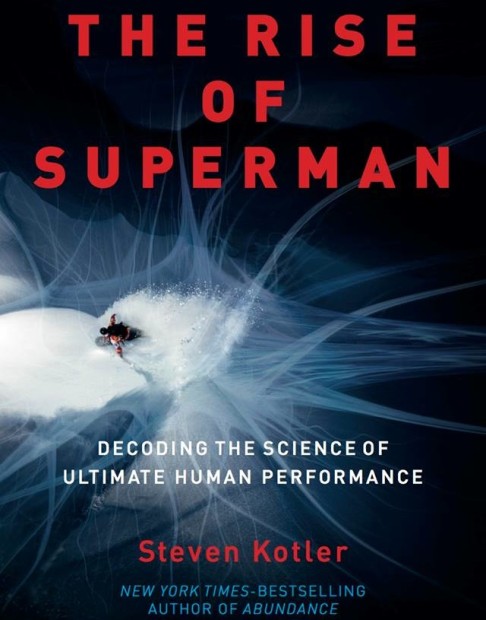“Most people don’t know what’s actually possible for themselves.” – Steven Kotler
Best selling author Steven Kotler has written a book describing how extreme athletes achieve “near perfect decision making” in extremely dangerous situations. Steven feels that if we can decode how these guys are thinking and decision making, we can apply that style of thinking to all aspects of human society.
Athletes brain’s hacked into:
Jeremy Jones, JT Holmes, Ian Walsh, Dean Potter, Danny Way, Laird Hamilton.
Over the past 30 years, skiers, snowboarders, surfers and other action sports athletes have pushed human performance farther and faster than at any other point in the 150,000-year history of our species. Think of some of the mind-blowing milestones in the last decade: Danny Way jumps the Great Wall of China on a skateboard; Laird Hamilton and Ian Walsh surf waves previously thought impossible; Travis Rice and Jeremy Jones charge Alaskan spines at super‐human speeds; JT Holmes and the Red Bull AirForce BASE jump off the Sears Tower and fly through an urban maze in wingsuits.
“Anyone can tap into this optimal state of consciousness to live happer, more productive, more fulfilling lives”
How did they do it? In a word, “flow.” Flow is the source code of ultimate human performance. It is a rare and radical state of consciousness where action and awareness merge, self vanishes, time slows down, and major aspects of physical and mental performance skyrocket.
“The Rise of Superman” examines the flow state, and how it enables the groundbreaking leaps in ultimate human performance made by surfers, skateboarders, skiers, rock climbers and more. But the book isn’t about how to surf monstrous waves, it uses these athletes as a case study to examine how anyone can tap into this optimal state of consciousness to live happer, more productive, more fulfilling lives. It is time to rise. – Rise of Superman
PRE-ORDER THE RISE OF SUPERMAN
The book is available starting March 4, 2014, but you can pre‐order it now here.

flow = zone. idea has been around a while. I don’t think that being willing to accept risk is part of the performance equation however.